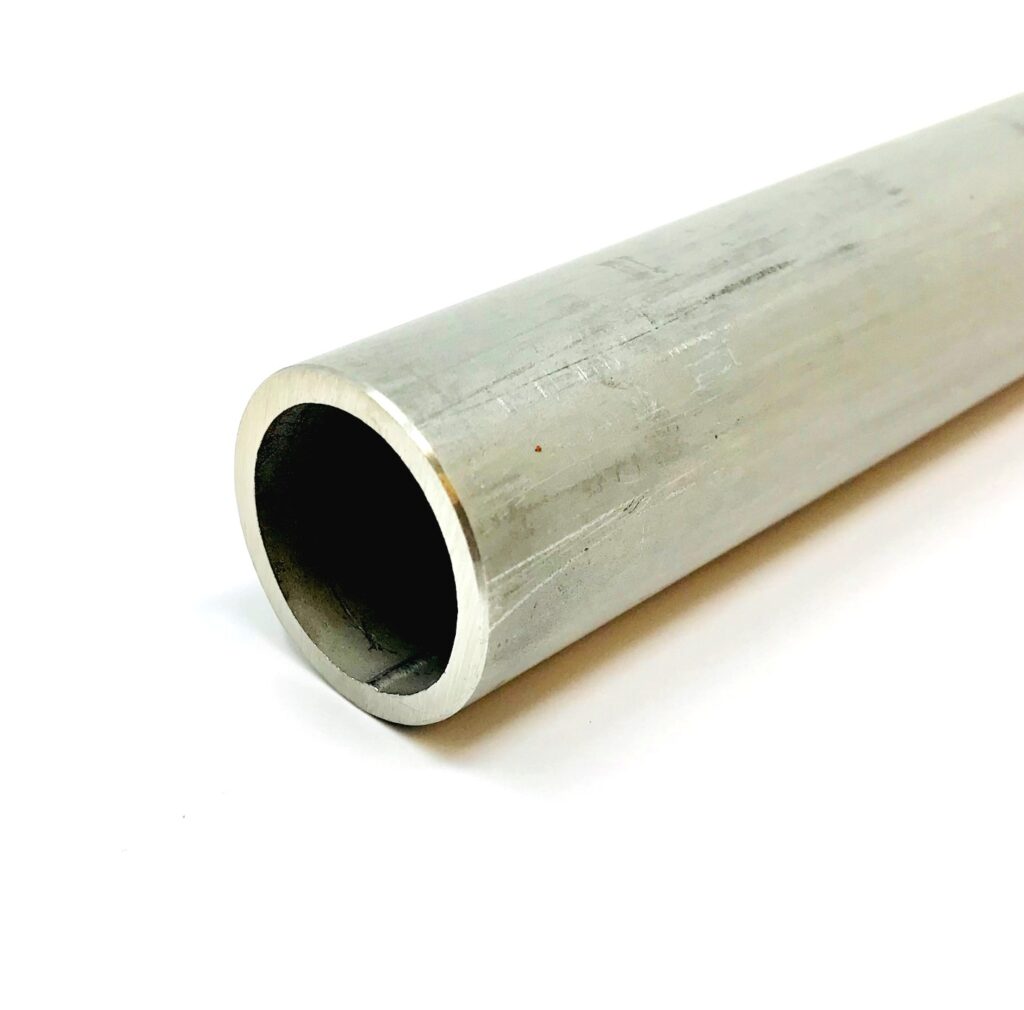Schedule 80 Stainless Steel Pipe
What is a Schedule 80 Stainless Steel Pipe
A Schedule 80 stainless steel pipe is among the most durable and reliable stainless steel pipes available for high-pressure applications. The term “Schedule” (or Sch) refers to the pipe’s wall thickness. The bigger the pipe schedules, the thicker the pipe walls. This makes Schedule 80 pipes particularly suitable for industries requiring extra strength and wear resistance.
While the pipe’s wall thickness increases as the schedule number increases, the inner diameter may vary depending on the specific requirements.
For example, both Schedule 80 and Schedule 40 pipes can have a nominal pipe size (NPS) of 1 inch. However, a Schedule 80 pipe features a thicker wall thickness of 0.179 inches and a smaller inner diameter of 0.915 inches. In contrast, a Schedule 40 pipe of the same nominal size has a thinner wall of 0.133 inches, resulting in a larger inner diameter of 1.009 inches.
The thicker walls of Schedule 80 stainless steel pipes offer enhanced resistance to corrosion, stress, pitting, and cracking, which we will explore in the next section.

Benefits and Applications of Schedule 80 Stainless Steel Pipe
Schedule 80 stainless steel pipes are designed with thicker walls, which provides superior corrosion resistance and protection against cracking. Their robust pipe schedule enables them to handle high-pressure and high-temperature conditions. These features make them ideal for demanding environments.
For example, a 1-inch NPS Schedule 80 stainless pipe can withstand a maximum allowable pressure of 6,670 to 45,990 kPa, compared to a Schedule 40 pipe of the same size, which supports lower pressures in the range of 5,273 to 36,357 kPa. This difference illustrates the toughness and durability of Schedule 80 pipes, making them more suitable for high-stress systems.
Due to the tough wall thickness and their higher ability to withstand high-pressure and high-temperature conditions, Sch 80 stainless steel pipes are used in the following:
- Heavy chemical processing systems
- Hydraulic systems in industrial settings
- Underground piping in areas with significant foot or vehicle traffic
- Commercial plumbing installations
- Manufacturing plants and assembly lines
- Agricultural irrigation systems
- Aquaculture infrastructure
Welded vs. Seamless Schedule 80 Stainless Steel Pipe
When choosing the right Schedule 80 stainless steel pipe for your project, understanding the differences between welded pipe and seamless pipe is essential. Each type has distinct advantages based on how they’re manufactured, which affects their performance, cost, and suitability for specific applications.
Welded Pipes
Welded stainless steel pipes are produced by rolling a flat steel plate into a cylindrical tube and welding the edges together to form the pipe. This method is less complex than manufacturing seamless pipes, making it more cost-effective. Because of this, welded pipes are typically preferred for lower-pressure applications where cost efficiency is a priority. Examples of these are commercial plumbing and architectural applications.
The presence of the weld seam can slightly reduce the pipe’s overall strength compared to seamless alternatives. However, modern welding techniques minimize this impact. Welded pipes can still handle considerable pressure but are generally not recommended for the most high-pressure or extreme environments.
Seamless Pipes
Seamless stainless steel pipes are manufactured by extruding a solid billet of steel into a hollow tube, creating a pipe without a weld seam. This creates a smoother, more uniform pipe structure, which provides superior strength and resistance to stress under high pressure. Seamless pipes are often the go-to choice for industries that require the highest performance, such as oil and gas control lines and valves below sea level.
The absence of a seam in seamless pipes makes them more durable and less prone to potential weak points, which is crucial for environments where pipe failure could be catastrophic. Additionally, seamless pipes often have a more consistent wall thickness, ensuring uniformity throughout the pipe.
Key Considerations
- Strength and Durability: Seamless pipes generally offer greater strength and durability due to the lack of a weld seam, making them more suitable for high-pressure applications.
- Cost and Weight: Welded pipes are typically more affordable and lighter than seamless pipes. It makes them a better option for projects with budget constraints or lower performance requirements.
Ready to Order Your Schedule 80 Stainless Steel Pipe? Contact Us Today!
At Alcobra Metals, we’re committed to helping you find the perfect Schedule 80 stainless steel pipe for your project. With a wide range of pipe sizes, custom options, and pipe fittings available, we ensure you get the exact specifications you need. We grant your order no matter how small.
We pride ourselves on our competitive pricing, reliable customer service, and fast shipping, which ensures your project stays on schedule.
Don’t hesitate to order now and experience why Alcobra Metals is a trusted national supplier of quality steel pipes for all your industrial and commercial needs.
